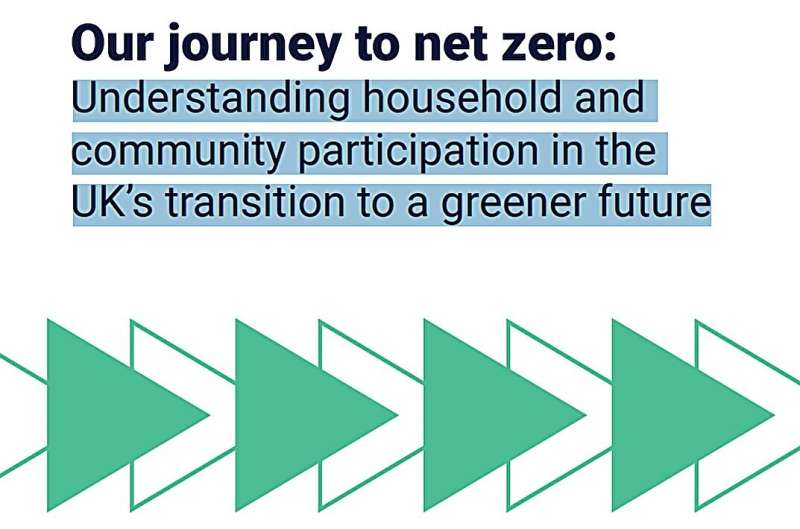
[ad_1]

Credit: York University
New research shows that the poorest 40% of UK households will be most affected by current net zero policies, leading to further deprivation and exclusion.
Researchers from the University of York have contributed to this. New report From The Young Foundation, which explores how transitioning to net zero can impact households and communities. It calls for Environmental policies Acknowledging existing inequalities to avoid further deprivation and exclusion, and ensuring a successful transition to a greener world.
“We are in the middle of a climate crisis and net-zero changes are an integral part of that,” says Caroline Snell, professor of social policy at the School for Business and Society, University of York. “They are already shaping how we live – but if we go too far down that road without helping those most in need, we will leave them behind.”
Inequality
Changes in home energy include the installation of smart home systems and the introduction of new technology. Heat pumps. Research shows that low-income people are unlikely to be able to afford to make these changes on their own.
“Not keeping up with these changes means that eventually parts of the population will be left with older, more expensive-to-run homes, which will actually make them worse off,” Professor Snell said.
“Net zero policies need to recognize and respond to existing inequalities – for example – policies should remove financial barriers that prevent low-income households from participating in transitions through new financial assistance packages. stop.”
Community engagement
The report added: Community engagement from policy makers. With work Local communities Understanding their needs and concerns is a long-standing element of environmental policy-making, which can be applied to a wide range of applications in relation to net zero.
“When we think about the transition to a greener future, we often think about the scientific, industrial and technological solutions that are necessary to manage the change,” said Kelly Kennedy, a York researcher on the project. They say. “But this is a humanitarian transition that requires the participation of individuals, households and communities, and that means including people at all stages of the journey, and recognizing that we are all on the same level. Not starting from the playground.”
More information:
Our journey to net zero: understanding household and community participation in the UK’s transition to a greener future. youngfoundation.b-cdn.net/wp-c … uary-2024.pdf?x59628
Provided by
University of York
Reference: Risks of Net Zero Policy Making the Poor Poorer, UK Report (2024, February 21) Accessed 21 February 2024 at https://phys.org/news/2024-02-net-policy-poor-poorer-uk Retrieved from .html
This document is subject to copyright. No part may be reproduced without written permission, except for any fair dealing for the purpose of private study or research. The content is provided for informational purposes only.
[ad_2]


